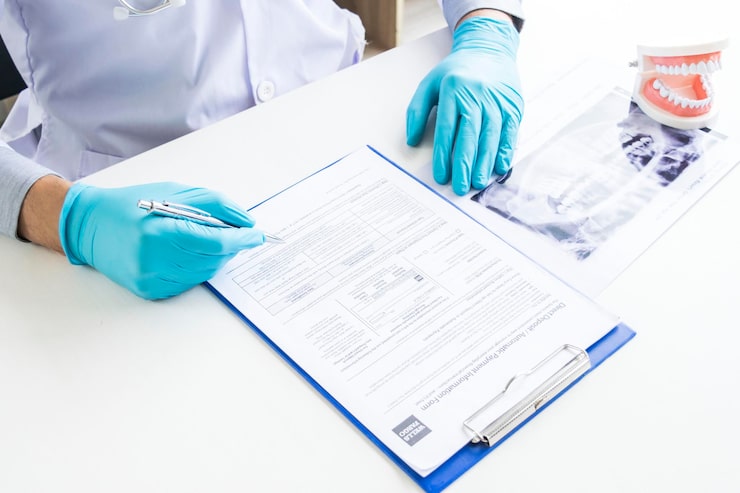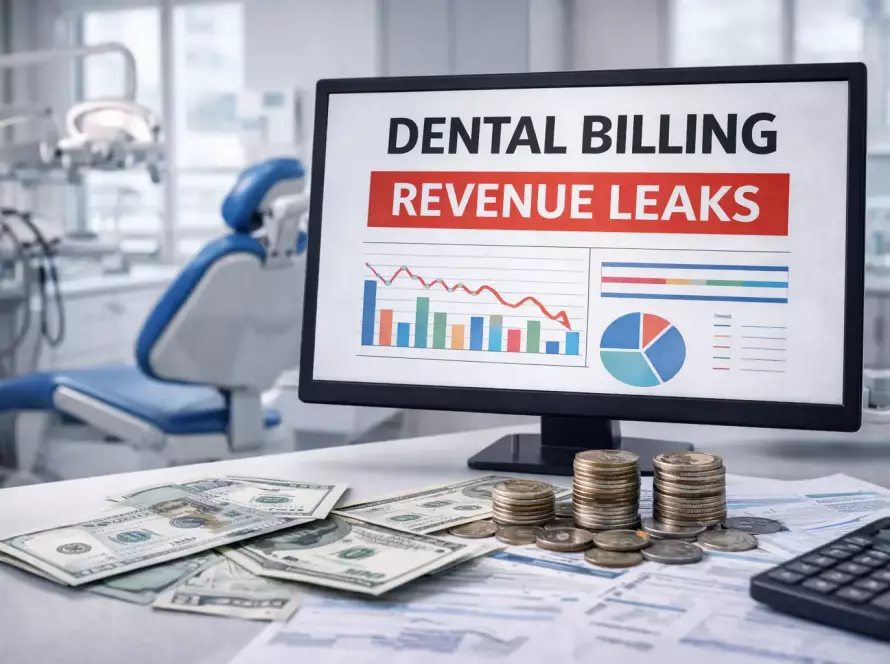For dental practices, HIPAA compliance in billing isn’t optional. It’s essential for building trust, avoiding penalties, and ensuring smooth operations.
This guide explains what HIPAA means in the context of dental billing, why it matters, and how your practice can stay compliant while improving revenue cycle management.
What Is HIPAA and Why Does It Matter for Dental Billing?
The Health Insurance Portability and Accountability Act (HIPAA) sets strict national standards for protecting patient information. In dental billing, this means:
Safeguarding patient health and insurance data
Securing electronic claim submissions
Preventing unauthorized access to financial or medical records
Failure to comply can lead to hefty fines, legal issues, and damaged patient trust.

Key HIPAA Requirements in Dental Billing
To stay compliant, dental practices must pay close attention to these areas:
Patient Data Security
All protected health information (PHI) — including insurance details, treatment plans, and payment history — must be securely stored and transmitted.Electronic Transactions
Claims submitted electronically must follow HIPAA’s transaction and code set standards, ensuring accuracy and consistency.Access Controls
Only authorized staff should have access to patient billing records. Role-based access and secure logins help reduce risks.Staff Training
Every employee involved in billing should receive HIPAA training to understand proper data handling and reporting procedures.
Common HIPAA Risks in Dental Billing
Even well-intentioned practices can make mistakes. Common risks include:
Sending claims via unsecured email
Using outdated software without encryption
Allowing multiple staff to share one login
Leaving patient billing statements visible at front desks

How to Maintain Compliance and Protect Your Practice
Use Secure Billing Software
Choose platforms that are HIPAA-compliant with encryption, access controls, and audit trails.Regular Staff Training
Make HIPAA training a part of onboarding and provide refreshers annually.Audit Your Billing Process
Regularly review how claims are submitted, stored, and accessed to catch risks early.Partner with Experts
Outsourcing billing to a HIPAA-compliant partner ensures your claims are processed securely and efficiently.
How CoDent Healthcare Solutions Helps with HIPAA Compliance
At CoDent Healthcare Solutions, compliance isn’t an afterthought — it’s built into everything we do.
HIPAA-compliant billing software
Secure claim submission and data handling
Trained billing professionals with strict privacy protocols
This means your practice can focus on patients while we protect your revenue and your reputation.



